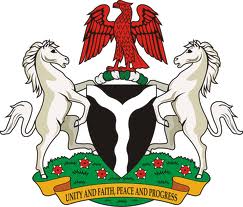 Abuja (Federal Ministry of Labour and Productivity Report) – The Federal Ministry of Labour and Productivity has reconstituted the Ministry’s Anti-Corruption and Transparency Monitoring Unit (ACTU).
Abuja (Federal Ministry of Labour and Productivity Report) – The Federal Ministry of Labour and Productivity has reconstituted the Ministry’s Anti-Corruption and Transparency Monitoring Unit (ACTU).
This was part of the monthly report on the review of activities issued by the Publicity Department of the Federal Ministry of Labour and Productivity for the month of September 2014. The report noted that while inaugurating the Committee on behalf of the Minister of Labour and Productivity, Emeka Wogu in Abuja recently, the Permanent Secretary, Clement Illoh stated that the reconstitution of the Anti-Corruption and Transparency Unit became necessary in order to refocus the Unit and strengthen its membership to effectively carry out war against corruption in the Ministry and its Parastatals.”
According to the report, the Minister in a paper entitled: “The Role of Government in Promoting Harmonious Industrial Relations for Productivity and National Development” delivered to participants of the Senior Executive Course (SEC) No. 36, 2014 at the National Institute for Policy and Strategic Studies, Kuru in Jos affirmed that Productivity and National Development are key to establishing mutual interest among industrial relations stakeholders.
Also speaking at the occasion, the Permanent Secretary of the Federal Ministry of Labour and Productivity, Clement Illoh (Dr) disclosed that the Federal Government is set to restructure the national productivity system to maximize, evaluate and monitor resources invested in the economy to ensure performance and service delivery. He said that measures were being put in place to develop and apply strategies for implementation of the National Policy on Productivity.
The report further indicated that during the opening of a workshop on “Implementing National Policy on Productivity and Basic Productivity Improvement Techniques in Workplaces,” lately, the Permanent Secretary noted that productivity improvement tools and techniques were critical instruments for the realization of Government’s Transformation Agenda in the areas of innovation, excellence at work, global competiveness, products and quality service delivery.
He stated that the Transformation Agenda Policy of President Goodluck Jonathan is geared towards growing Nigeria’s economy with corresponding increase in peoples’ welfare and job creation.
In another development, the Minister of Labour and Productivity, Emeka Wogu inaugurated a Technical Committee on the National Policy on Vocational Skills Development towards bridging identified gaps in technical – vocational trainings in Nigeria. The monthly report stated that the 14-man Committee will be chaired by the Director of Productivity Measurement and Labour Standards in the Ministry of Labour and Productivity, Theresa Braimah. Other members of the Committee mentioned were the representatives of the Council for the Regulation of Engineering in Nigeria (COREN); the National Board for Technical Education Headquarters, Kaduna; Lagos State Technical and Vocational Education Board and the CEO of 360 Capacity Builders Ltd as well as a retired Director of Skills Development and Certification in the Federal Ministry of Labour and Productivity, Sheriff Bukar Konduga, among others.
“The Ministry is currently collaborating with the International Labour Organisation (ILO) to review and update the National Employment Policy in line with national and global economic trends. This was stated by the Minister in Abuja while declaring open a training workshop tagged: “National Employment Summit: Challenges of Implementation” organized by the Ministry,” the report said.
“The workshop was also aimed at building the competences that would enable them contribute constructively to the Ministry’s drive to achieve the milestones contained in the National Action Plan on Employment Creation (NAPEC). The Minister observed in his keynote address delivered at the interactive session of social partners on the ‘Challenges of Trade Unions’ Jurisdictional Scope and Voluntarism in Nigeria’ organised by the Ministry in Abuja that social dialogue is key to effective trade unionism and national development.”
In a goodwill message delivered at the occasion, the Director of the International Labour Organisation (ILO) Country Office in Nigeria and Liaison Officer for ECOWAS, Sina Chuma-Mkandawire stressed that the ILO promotes freedom of association at the core of its mandate. Sina Chuma-Mkandawire represented by Runo Onasode stated that the standard set by ILO (Article 2 of Convention No. 98) on freedom of association requires that there should be total independence of workers’ organizations from employers in exercising their activities.
The September 2014 monthly report further averred that the Federal Ministry of Labour and Productivity has between 2010 and 2014 initiated and implemented proactive policies and programmes which have enhanced the development of the labour sector in line with international best practices and the objectives of the Transformation Agenda. It added that the Minister revealed this in Abuja while performing the public presentation of the books: “Compendium of Nigerian Labour Laws and Other Related Laws” and “Guidelines on Labour Laws in Nigeria.”
In his welcome address at the occasion, the Permanent Secretary of the Ministry noted that the publications have the potential of bridging the knowledge gap in the understanding of labour relations in Nigeria, adding that the recurrence of strikes, lock-outs and picketing has been largely due to ignorance of relevant labour laws on the part of employers and employees.
Support InfoStride News' Credible Journalism: Only credible journalism can guarantee a fair, accountable and transparent society, including democracy and government. It involves a lot of efforts and money. We need your support. Click here to Donate
